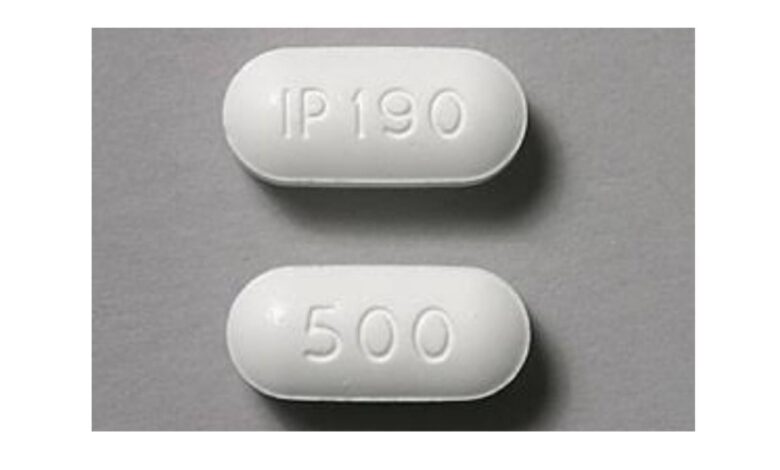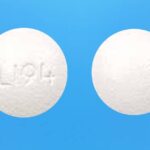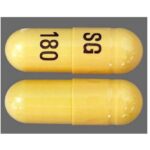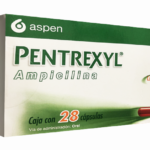IP 190 500 Pill: Uses, Dosage, Side Effects, Interactions

The white elliptical pill with imprint the IP 190 500 has been identified as Naproxen 500 mg supplied by Akyma Pharmaceuticals. Naproxen belongs to a group of medications called nonsteroidal anti-inflammatory drugs (NSAIDs). It reduces swelling, inflammation and pain, and is used for the relief of mild to moderately severe pain accompanied by inflammation.
IP 190 500 pill is used to help relieve pain due to muscle injury, (e.g., bone, muscle, tendon, cartilage, ligament), dental extraction, menstrual cramps, and cramping after childbirth. It is believed to work by stopping the production of prostaglandins, which cause pain and swelling. Your doctor may have suggested this medication for conditions other than those listed in these drug information articles. If you have not discussed this with your doctor or are not sure why you are taking this medication, speak to your doctor. Do not stop taking this medication without consulting your doctor.
How should I take IP 190 500 pill?
Use IP 190 500 pill exactly as directed on the label, or as prescribed by your doctor. Do not take this medicine in larger amounts or for longer than recommended. Use the lowest dose that is effective in treating your condition.
If you change brands, strengths, or forms of this medicine, your dosage needs may change. Ask your pharmacist if you have any questions about the kind of naproxen you are using.
If a child is using this medicine, tell your doctor if the child has any changes in weight. Doses are based on weight in children, and any changes may affect your child’s dose.
If you use this medicine long-term, you may need frequent medical tests.
This medicine can cause unusual results with certain medical tests. Tell any doctor who treats you that you are using naproxen.
What side effects are possible with this medication?
Many medications can cause side effects. A side effect is an unwanted response to a medication when it is taken in normal doses. Side effects can be mild or severe, temporary or permanent.
The side effects listed below are not experienced by everyone who takes this medication. If you are concerned about side effects, discuss the risks and benefits of this medication with your doctor.
The following side effects have been reported by at least 1% of people taking this medication. Many of these side effects can be managed, and some may go away on their own over time.
Contact your doctor if you experience these side effects and they are severe or bothersome. Your pharmacist may be able to advise you on managing side effects.
- abdominal pain
- drowsiness
- heartburn
- indigestion
- nausea
- vomiting
Although most of the side effects listed below don’t happen very often, they could lead to serious problems if you do not seek medical attention.
Check with your doctor as soon as possible if any of the following side effects occur:
- confusion
- decreased hearing, any other change in hearing, or ringing or buzzing in ears
- difficult or painful urination
- dizziness or lightheadedness
- feeling of being unwell
- increased sensitivity of the skin to sunlight (sunburn, skin blisters, skin rash, redness, itching, discoloration)
- persistent heartburn, stomach pain, diarrhea, or nausea
- rapid weight gain
- signs of clotting problems (e.g., unusual nosebleeds, bruising, blood in urine, coughing blood, bleeding gums, cuts that don’t stop bleeding)
- swelling of the feet or ankles
- symptoms of depression (difficulty concentrating, trouble sleeping or sleeping too much, increase or decrease in appetite, loss of energy, feeling of guilt or hopelessness, loss of interest in activities)
- symptoms of liver problems (e.g., yellowing of the skin or eyes with or without itchy skin)
- vomiting
Stop taking the medication and seek immediate medical attention if any of the following occur:
- blurred vision or any visual disturbance
- change in the amount or colour of urine
- signs of bleeding in the stomach (e.g., bloody, black, or tarry stools, spitting up of blood, vomiting blood or material that looks like coffee grounds)
- signs of meningitis not caused by infection (e.g., headache [severe], throbbing, or with stiff neck or back)
- signs of a serious allergic reaction (e.g., abdominal cramps, difficulty breathing, nausea and vomiting, or swelling of the face and throat)
- signs of a severe skin reaction (e.g., blistering, peeling, a rash covering a large area of the body, a rash that spreads quickly, or a rash combined with fever or discomfort)
- shortness of breath, wheezing, and chest tightness
Some people may experience side effects other than those listed. Check with your doctor if you notice any symptom that worries you while you are taking this medication.
IP 190 500 Pill Safety Information
You should not use naproxen if you have a history of allergic reaction to aspirin or other NSAID (nonsteroidal anti-inflammatory drug). Naproxen can increase your risk of fatal heart attack or stroke, especially if you use it long term or take high doses, or if you have heart disease. Even people without heart disease or risk factors could have a stroke or heart attack while taking this medicine.
Do not use this medicine just before or after heart bypass surgery (coronary artery bypass graft, or CABG).
Get emergency medical help if you have swelling of the face or throat, chest pain, weakness, shortness of breath, slurred speech, or problems with vision or balance. Stop taking naproxen and notify your physician if you notice stomach pain, tiredness or weakness, yellow skin or eyes, nausea, vomiting, bloody or black and sticky bowel movements, skin rash, unexplained weight loss or weight gain, or swelling of the hands and feet.
Naproxen may also cause stomach or intestinal bleeding, which can be fatal. These conditions can occur without warning while you are using this medicine, especially in older adults.





